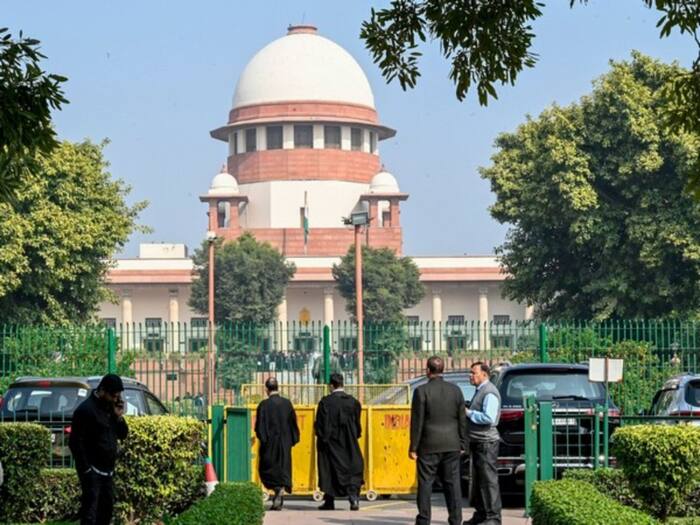The Supreme Court of India is set to pronounce its judgement in the Adani Hindenburg Case today, January 3, 2024 on the batch of pleas seeking independent probe in fraud allegations against the Adani Group.

New Delhi: The Supreme Court of India has delivered its final verdict in the Adani-Hindenburg Case, on a batch of pleas demanding an independent, court-monitored probe in the allegations of fraud levelled against the Adani Group of Companies in the Adani-Hindenburg Research report. The case was heard last year and the top court had reserved its judgement in the same, in November 2023. The apex court has rejected the transfer of probe from SEBI to SIT saying there are ‘no grounds’ for the same. Read to know what exactly is the Adani-Hindenburg Case..
What Is The Adani-Hindenburg Case?
A batch of pleas were filed in the apex court, seeking an independent probe in the allegations of fraud against the Adani Group of Companies, as mentioned in the Hindenburg Research Report. There were allegations that Adani had inflated its share prices and after the publishing of these allegations, reportedly, the companies of Adani face a sharp fall of share value of about 100 dollar billion.
Due to this, a batch of petitions were filed in the Supreme Court which also included a plea alleging changes made to the SEBI Act acted as a ‘shield and excuse’ for the regulatory contraventions and market manipulations of the Adani Group to remain undetected.
Once the petitions were filed, the apex court asked Securities and Exchange Board of India (SEBI) to investigate the matter separately , apart from making an expert committee which would be headed by Justice AM Sapre, who is a retired judge. In its report, the expert committee had said that ‘no prima facie lapse’ was found on part of SEBI and during the hearing in SC on Nov 24, 2023, SG Tushar Mehta had said that media reports were being ‘planted’ to influence decisions within India.
Advocate Prashant Bhushan, appearing for one of the petitioners, had told the apex court that there were many factual revelations in the Hindenburg report. He said it was for the top court to see whether the investigation done by the SEBI was credible or not and whether some other independent organisation or an SIT needed to be formed to investigate it.
Supreme Court Final Verdict In Adani-Hindenburg Case
As mentioned earlier, the Supreme Court of India has delivered its final verdict in the Adani-Hindenburg Case. The Chief Justice of India highlighted two major points during the pronouncement of the judgement, the first being that the power of this court to enter the regulatory framework of SEBI is limited and secondly, no valid grounds raised to direct SEBI to revoke its amendments on FPI and LODR regulations. Therefore, the regulations do not suffer from any infirmities. The CJI has further said that the Securities and Exchange Board of India (SEBI) has completed investigation in 20 out of 22 matters and taking into account the assurance of Solicitor General, the court has directed the SEBI to complete the investigation in the other two cases within 3 months.
(Inputs from ANI)

